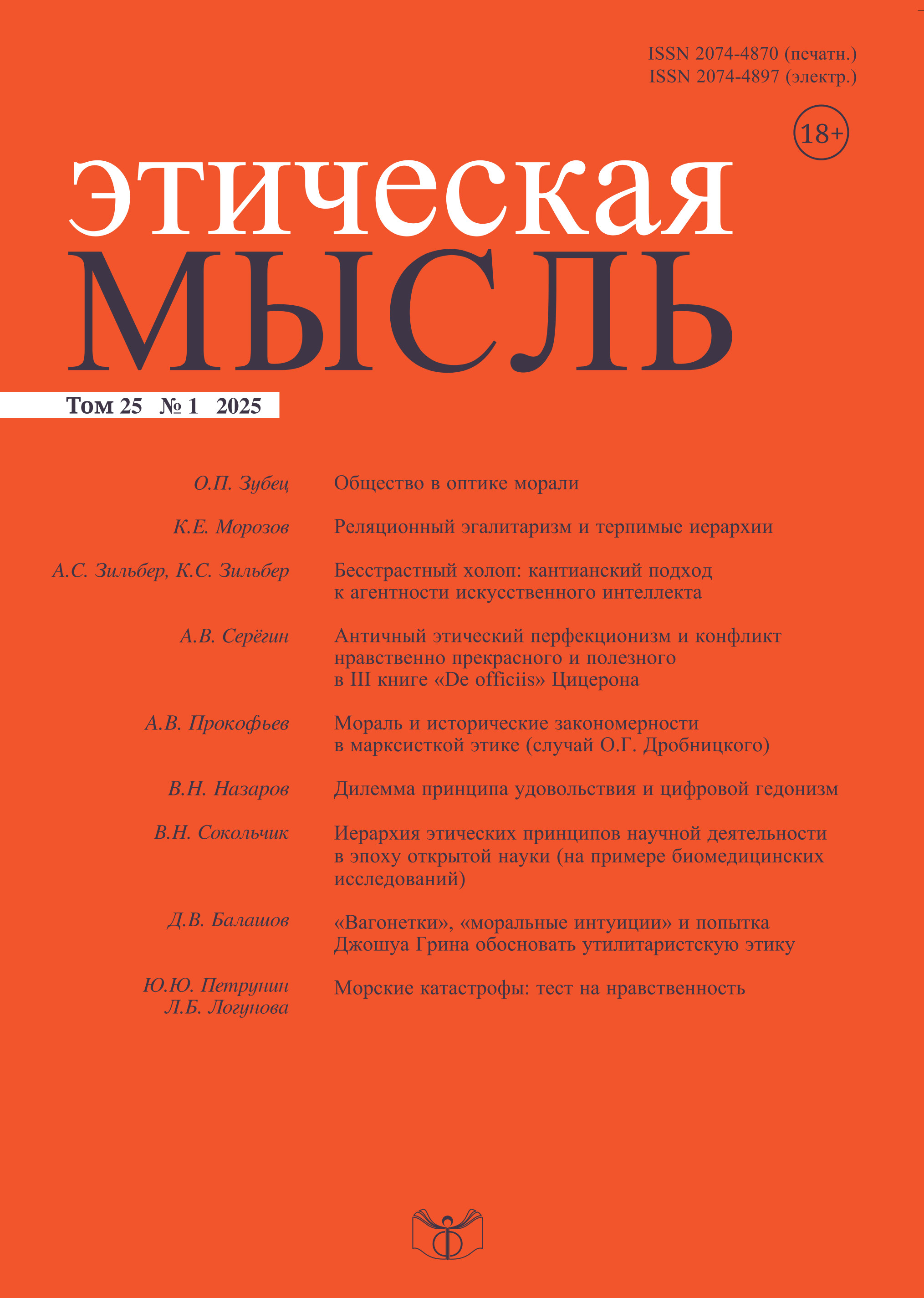Morality and Laws of History in Marxist Ethics (the Case of O.G. Drobnitskii)
DOI:
https://doi.org/10.21146/2074-4870-2025-25-1-81-98Keywords:
morality, ethics, laws of history, social statics, class straggle, equality, communismAbstract
The article analyses the famous Soviet ethicist O.G. Drobnitskii’s views on the place of morality in the history of mankind conforming to ‘the laws of social being’. Drobnitskii points out that morality solves the ‘prosaic and everyday’ task of regulating the behaviour of members of a ‘closed social system’. Moral requirements and mechanisms of their realisation prevent the commission of antisocial acts. However, the nature of moral requirements is such that their existence cannot be explained solely by their ‘prosaic and everyday’ task. In idealist ethics, it is considered a result of ‘extra-historical-transcendent’ and ‘personal’ sources of morality. However, Drobnitskii proposes another solution of the problem: morality meets the needs not only of ‘closed social systems’ but also of the whole of humanity involved in world-historical development. The formal ‘postulates of morality’ (first of all, the idea of universal equality) are filled with more and more adequate normative content in the process of class struggle, and this contributes to the victory of the progressive classes. At the same time, moral requirements guess andanticipate the predetermined future of mankind – a society without exploitation, violence and war.









